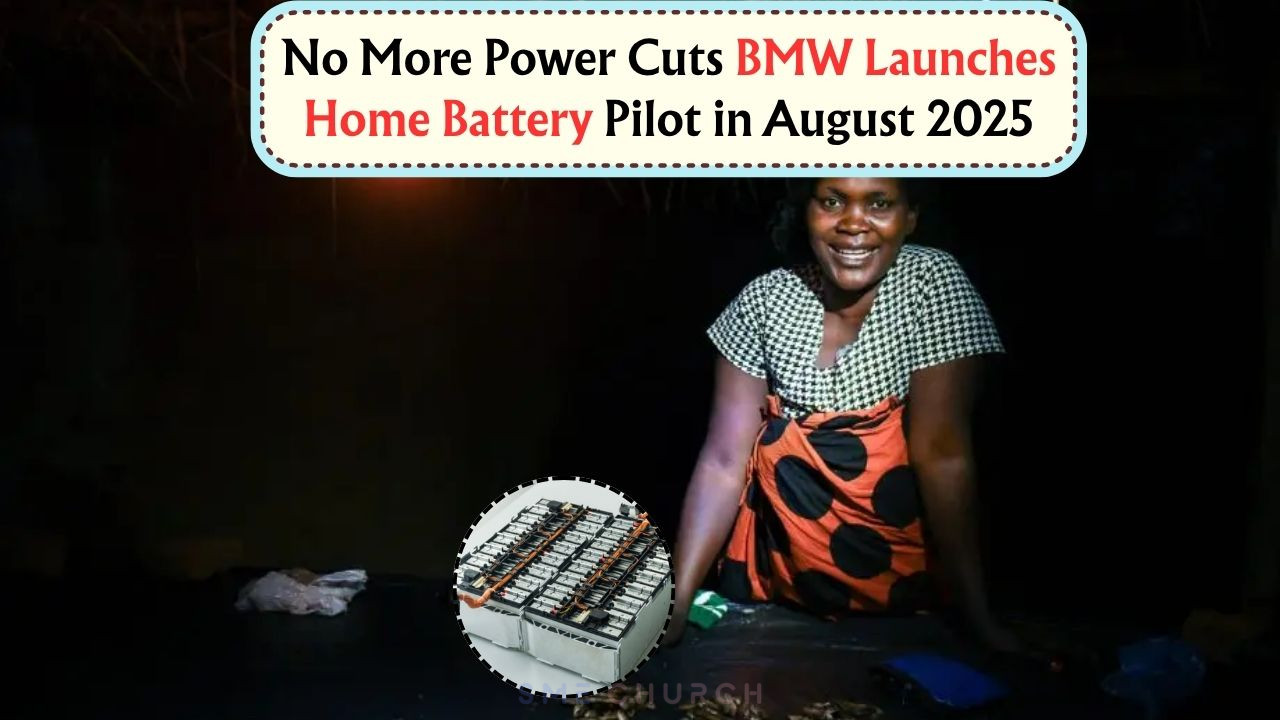Could Load Shedding Become a Thing of the Past for South African Homes?: South Africans have long battled with the challenges of load shedding, a phenomenon that disrupts daily life and hampers economic growth. The recent move by BMW to launch a battery pilot project this August could mark the beginning of a new era for energy stability in South Africa. By leveraging cutting-edge battery technology, this initiative aims to provide a reliable power solution that could lessen the country’s dependence on conventional electricity grids and potentially eliminate load shedding altogether. As the nation looks towards sustainable energy solutions, this development offers a beacon of hope for millions of households.
BMW’s Battery Pilot Project: A Step Towards Energy Independence
BMW’s battery pilot project is set to launch in August and aims to address one of South Africa’s most pressing issues—energy security. By introducing advanced battery storage systems, BMW plans to create a more stable and sustainable energy environment. The project will initially focus on residential areas, offering homeowners a viable alternative to the unreliable power grid. These batteries are designed to store excess energy generated during off-peak periods, which can then be used during peak demand times. This not only ensures a constant power supply but also helps in reducing energy costs for consumers.
- Reduced dependence on the national grid
- Lower electricity bills
- Increased energy reliability
- Environmental benefits through reduced carbon emissions
- Boost to the local economy through job creation
How Does the BMW Battery System Work?
The BMW battery system operates by storing energy when it is most abundant and discharging it during shortages. This is particularly beneficial in South Africa, where energy demand often surpasses supply. The system integrates seamlessly with existing solar panel setups, allowing homeowners to maximize their renewable energy usage. Furthermore, BMW’s batteries are equipped with smart technology that optimizes energy usage based on consumption patterns, ensuring efficiency and reliability.
| Feature | Description |
|---|---|
| Energy Storage Capacity | Up to 10 kWh |
| Compatibility | Works with solar panels |
| Smart Technology | Optimizes energy usage |
| Cost Savings | Reduces electricity bills |
The Future of Load Shedding in South Africa
With the introduction of BMW’s battery pilot project, the future of load shedding in South Africa looks promising. This initiative could potentially lead to significant reductions in power cuts, provided it is widely adopted and implemented effectively. The government, in collaboration with private enterprises like BMW, is working towards a sustainable energy future that prioritizes innovation and efficiency.
- Potential for nationwide adoption
- Support from government energy policies
- Collaboration with local businesses
- Incentives for renewable energy installations
- Public awareness and education campaigns
Challenges and Opportunities
| Challenge | Opportunity | Solution | Outcome |
|---|---|---|---|
| High Initial Cost | Long-term Savings | Subsidies for installation | Increased adoption |
| Lack of Awareness | Community Education | Public awareness campaigns | Greater acceptance |
| Technical Barriers | Technological Advancements | Research and Development | Improved systems |
What South Africans Can Expect from This Initiative
The success of BMW’s battery pilot could pave the way for other innovative solutions in the energy sector. South Africans can expect a future where energy is not only reliable but also affordable and sustainable. This initiative represents a significant step forward in the country’s journey towards energy independence, with the potential to inspire similar projects across the nation.
- More sustainable energy solutions
- Increased investor interest in green technologies
- Enhanced energy infrastructure
- Job creation in the renewable sector
- Economic growth through innovation
Looking Ahead: The Role of Technology in Solving Load Shedding
Technology plays a crucial role in solving the load shedding crisis in South Africa. Innovations like BMW’s battery pilot project are just the beginning. As technology continues to evolve, we can expect more advanced solutions that will further stabilize the energy supply and reduce reliance on traditional power sources. The future holds exciting prospects for a more sustainable and resilient energy landscape.
| Year | Technology | Impact | Projection | Result |
|---|---|---|---|---|
| 2023 | Battery Systems | Reduced Load Shedding | Widespread Adoption | Energy Stability |
| 2025 | Smart Grids | Increased Efficiency | Nationwide Implementation | Optimized Usage |
| 2030 | Renewable Integration | Decreased Carbon Footprint | Global Leadership | Environmental Benefits |
FAQs
What is BMW’s battery pilot project?
The BMW battery pilot project aims to provide South African homes with reliable energy storage solutions, potentially eliminating load shedding.
How does the battery system work?
The system stores energy during off-peak times and discharges it during peak demand, working seamlessly with solar panels.
What are the benefits of this initiative?
The project promises reduced electricity bills, increased energy reliability, and environmental benefits through decreased carbon emissions.
Is the battery system compatible with existing solar setups?
Yes, BMW’s battery system is designed to integrate with solar panels, optimizing renewable energy usage.
What challenges does the project face?
Challenges include high initial costs and lack of awareness, which can be overcome with subsidies and public education campaigns.








